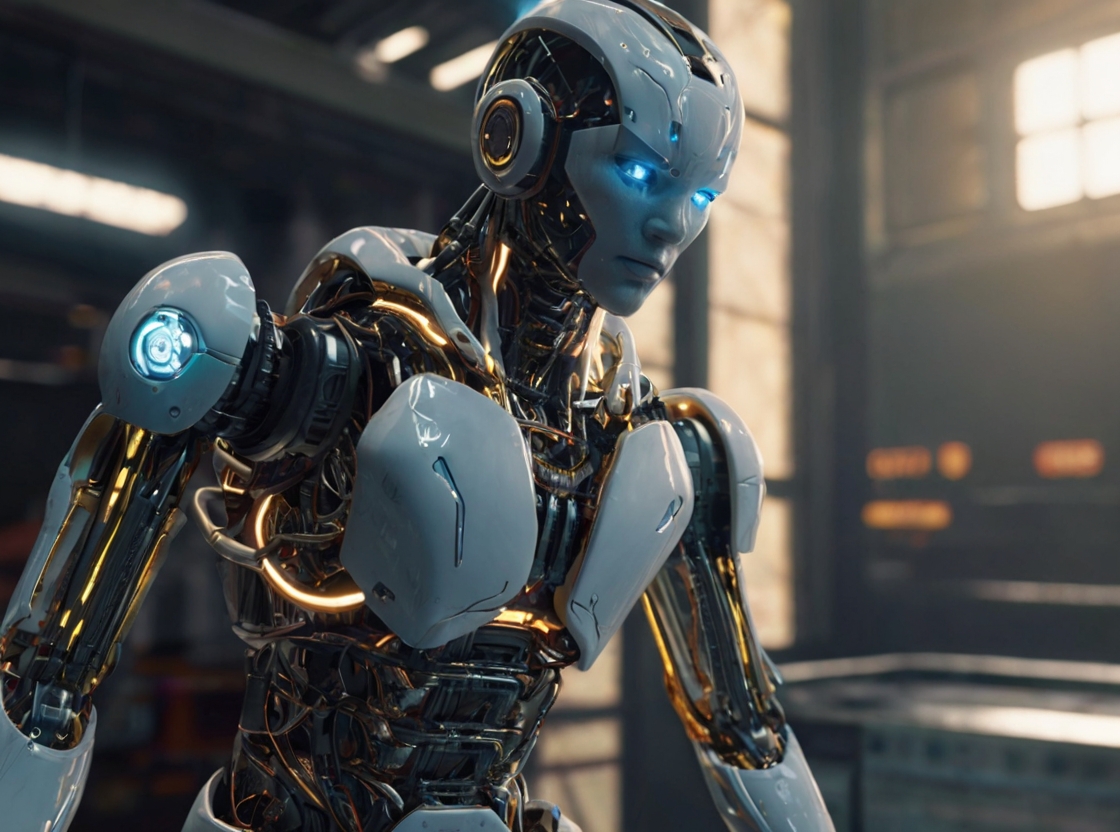
The design, play, and experience of video games have all changed dramatically as a result of artificial intelligence (AI) being incorporated into the process. Being at the forefront of this technological revolution, we at Melior Games use AI to improve gameplay dynamics and automate challenging game mechanisms. This piece examines the ways in which artificial intelligence (AI) is changing the field of game mechanics and the numerous advantages it offers to both players and developers.
Automating Complex Game Mechanics
1. Procedural Content Generation
Procedural content generation is one of the most important ways AI automates game mechanics (PCG). AI systems are capable of dynamically creating large, complex, and varied gaming worlds, stages, and scenarios. This guarantees that every player has a unique experience while simultaneously lightening the strain for developers. For example, in a rogue-like game, AI can create infinite dungeons where each playthrough presents fresh difficulties and surprises.
2. Dynamic Difficulty Adjustment
AI instantly assesses a player’s skill level and modifies the complexity of the game accordingly. This dynamic difficulty modification keeps players interested, by keeping the game challenging. AI can produce a fair and entertaining game experience customized to each player’s skill level by changing resource availability, adversary AI behaviors, and puzzle complexity.
3. Intelligent NPCs
AI-powered Non-Playable Characters (NPCs) can interact and behave realistically. AI-driven characters have the ability to respond to player actions, learn from their activities, and make decisions that enhance the gameplay, in contrast to standard programmed NPCs. Artificial intelligence (AI) has the ability to give the game world life and responsiveness by allowing NPCs to establish alliances, betray the player, or respond emotionally to their decisions.
4. Real-Time Strategy and Decision Making
AI is capable of handling intricate decision-making in real-time strategy games, including tactical combat moves and resource management. AI has the ability to optimize these processes much beyond what humans are capable of, giving gamers a tough challenge and producing more dynamic and interesting gameplay. Because of this, creators are able to create strategy games that are more complex and nuanced without becoming too micromanaging for players.
Enhancing Gameplay Dynamics
1. Personalized Gaming Experiences
The behavior, preferences, and play styles of players provide valuable data for AI analysis and gaming experience customisation. This customization can take many forms, from suggesting particular tasks or goods to altering the plot in response to the player’s choices. AI makes the experience more interesting in this sense.
2. Adaptive Storytelling
AI-powered adaptive narratives are replacing traditional linear storytelling in video games. Branching narratives that change according to the decisions and deeds of the player can be produced by AI. This improves the game’s overall richness and replayability by creating a more interesting and dynamic plot where players feel like their choices have real-world repercussions.
3. Enhanced Player Engagement
Through dynamic event generation, AI can increase player interest. Players may remain engaged in the game by AI-triggered challenges, prizes, and random events. In order to keep the game interesting and engaging even after many hours of play, these dynamic occurrences may be dependent on the player’s progress.
4. Realistic Simulations
AI-powered simulations can produce more realistic and captivating game environments. It can simulate complex systems that react realistically to player activities. Examples of the systems are weather patterns, ecosystems, character behaviors, and physics. In this way, the depth and replay value of the game are increased.
The Future of AI in Game Development
AI in game development has a bright future ahead of it. We may anticipate increasingly more complex and wise gaming dynamics as AI technology develops. We at Melior Games are dedicated to extending the limits of artificial intelligence in video games. The possibilities are numerous, ranging from crafting more realistic non-player characters to crafting dynamic and captivating virtual environments.
In conclusion, AI is a powerful tool that is reshaping the gaming industry. By automating complex game mechanics and enhancing gameplay dynamics, AI not only streamlines the development process but also enriches the player’s experience. As we continue to explore and innovate with AI, the future of gaming promises to be more dynamic, immersive, and personalized than ever before.




